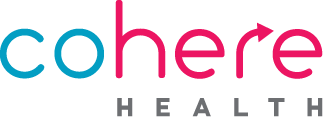It’s well-documented that pre-authorization eats up time and money for all stakeholders. This is in no small part due to the complex submission process that practices encounter under traditional utilization management. Physicians working on multiple UM platforms for multiple health plans spend an inordinate amount of time adhering to a wide variety of guidelines and requirements to reach approvals while simultaneously attempting to keep up with the best clinical practices available. It’s no wonder then that, according to a study conducted by JAMA, one 17-hospital system spent $11 million annually to comply with plans’ pre-authorization requirements or that physicians report their offices spend an average of two business days a week on addressing these clerical processes. Now, as new solutions emerge and regulations around UM crop up all over, it’s time to rethink utilization management altogether and ask, “How do we get practices on a faster track to appropriate care?”
Health plans have been frustrated trying to find a good answer to that question. A primary reason is, the technology to suggest alternatives, beyond simply processing the authorization request, hasn’t existed until now. For example, suggesting an outpatient setting when the request is for inpatient can save money for the plan and the patient, but a clinician-to-clinician conversation to drive that change may be too expensive and time-consuming to be worthwhile. Cohere’s AI-driven “nudges” bridge that gap. On an administrative level, a nudge tells the precertification specialist what is needed for prompt determination before a delay or denial occurs, then allows for real-time adjustment in the authorization request process. But even more valuable to the health plan, a nudge can automatically suggest lower cost, higher quality care alternatives that would be impractical or impossible to communicate in a manual process. Each “nudge” is, by design, mutually beneficial: the health plan can promote administrative completeness and accuracy, as well as the most clinically appropriate, cost-effective medical services for that specific patient scenario, while the practice is supported with clear steps to immediate determination. “Nudges” work on two levels to expedite the process, and to drive additional medical cost savings beyond typical UM processes:
Cutting through administrative complexity: Achieving rapid determination remains difficult since administrative policies and documentation requirements constantly change across all of the health plans a practice works with. Practices are often left with no way to keep up with shifting requirements until denials make them aware after the fact. Our administrative nudges automatically notify provider staff what documentation is required in order to get an immediate response to the request. The expensive back-and-forth and care delays associated with gathering necessary documents are thus eliminated.
Leveraging evidence-based guidelines to suggest the most clinically appropriate care: Health plans are rightfully concerned with how best to deploy prior authorization to ensure their members receive the most clinically appropriate and cost-effective care, without unnecessary delays. Cohere’s unique nudges combine innovative technology, evidence-based guidelines and patient-specific data, to automatically suggest the most appropriate and cost-effective care options for that specific patient’s medical scenario, or episode. These suggestions range from adjusting the location where treatment is conducted to advising more clinically appropriate regimens for the patient. For example, if an inpatient procedure is requested for something routine like arthroscopy or arthroplasty, a “nudge” can suggest moving to the safer, less expensive outpatient setting. In the case of treatments like epidural steroid injections or viscosupplementation, a nudge verifies the impact of previous uses of the requested regimen or checks if more conservative treatments like NSAIDs or physical therapy have been attempted before rounds of more serious services are approved. The flexibility and power of the underlying AI capabilities enables hundreds of nudge use cases, all of which softly realign care without creating friction, and drive 15-25% additional medical cost savings beyond incumbent UM programs.
While the work being done between physicians and traditional UM entities has been fraught with difficulty for decades, the positive reception we’re seeing so far implies that “nudges” signal a new era for every stakeholder. Cohere nudges help reduce provider friction, while simultaneously increasing medical cost savings. That’s a hard combination to come by. With increased attention on improving prior authorization and trimming turnaround times all over the country, solutions must evaluate their tactics. Heavy-handed management is out; careful coordination and collaboration are in.

